Last updated: November 9, 2022
Article
Route 66: 2019 Cost-Share Grands Announced
The National Park Service, Route 66 Corridor Preservation Program, is pleased to announce the recipients of its 2019 cost-share grant awards.
Since 2001, 152 projects have been awarded $2.27 million with $3.57 million in cost-share match, totaling $5.84 million in public-private investment toward the revitalization and understanding of Route 66.
The 2019 grant awards go to:
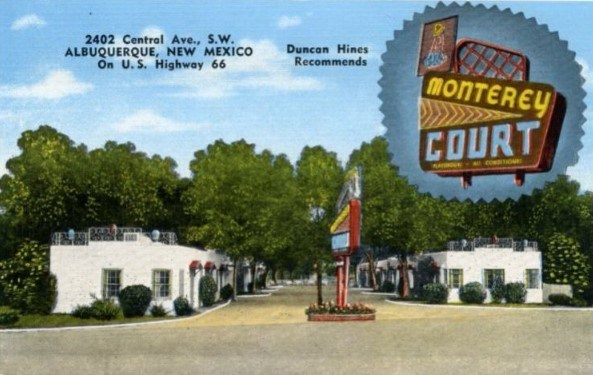
Monterey Motel Window Restoration
Location: Albuquerque, New Mexico
Applicant: Private Owner
NPS Grant: $30,000 Cost-Share Match: $34,294
The Monterey Motel (formerly Monterey Court) was constructed in 1937 as one of approximately 100 small tourist courts in Albuquerque catering to Route 66 travelers between the 1930s and 1950s. Today, with fewer than 30 of those tourist courts remaining, the Monterey Motel stands as an important example of tenacity in the face of development pressures and competing lodging markets. The motel has remained in continuous operation since it opened, although it has gone through several alterations that have impacted its historic appearance. Building on the success of the neighboring, recently re-opened El Vado Motel, the new owners will work to restore the Monterey Motel to its 1930s appearance, while also restoring its eligibility for listing on the National Register of Historic Places. Grant funds will assist with the restoration of the steel sash windows.
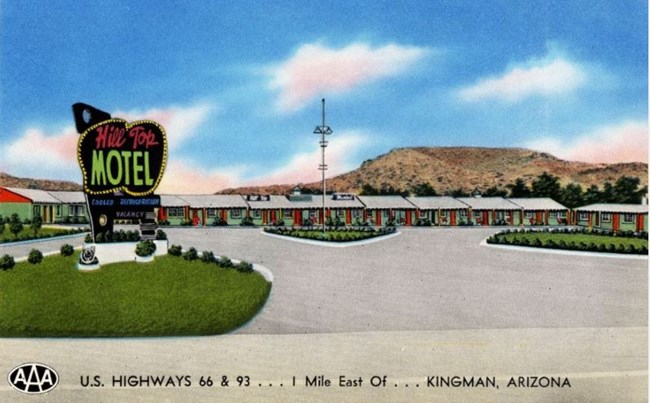
Hill Top Motel Historic Neon Sign and Swimming Pool Restoration
Location: Kingman, Arizona
Applicant: Private Owner
NPS Grant: $30,000 Cost-Share Match: $37,000
In 1953, John Mescheid, a general contractor from Santa Monica, California, purchased land on a prominent hill top in Kingman, Arizona. This included 350-feet of property frontage along bustling Route 66. Seeing commercial opportunity, Mescheid constructed a sprawling, 20-room motel using volcanic ash block to help decrease noise from the highway. The crowning touch to the new business was the addition of a large, flashing neon sign and a swimming pool that showcased a sweeping view of the nearby mountain ranges. Since opening in 1954, the motel had been in continuous operation until its recent closure in 2017. Fortunately, new owners have since purchased the motel with the intent of restoring it to its mid-century appearance. Extensive work is currently underway to update the electrical systems, plumbing systems, and room interiors. Grant funds will assist with restoration of the iconic neon sign as well as the historic pool, both of which are important elements of the cultural landscape and historic experience of the motel.

Williams’ Store Exterior Brick Tuck Pointing
Location: Riverton, Kansas
Applicant: Private Owner
NPS Grant: $2,500 Cost-Share Match: $2,500
The Williams’ Store in Riverton, Kansas, opened in March 1925 and sold everything from gasoline, to groceries, to general merchandise. Customers could buy shoes, clothes, and food staples such as ice, milk, eggs, bread, fresh meat, canned food, and penny candy, as well as bulk foods such as lard, peanut butter, and vinegar. Hot food was also served, including chili, barbecued beef, and venison. Signs on the building from this time read, “Y Not Eat Williams Bar-B-Q and General Merchandise”, and by the time Route 66 passed its front door in 1926, many people did. Operating continuously since that time, the store is now known as Nelson’s Old Riverton Store and continues to serve both travelers and local residents alike. Listed on the National Register of Historic Places, past NPS grants have assisted with much needed roof, electrical, and wood floor repairs. Current NPS grant funds will assist with tuck pointing and masonry repairs to the building’s exterior.
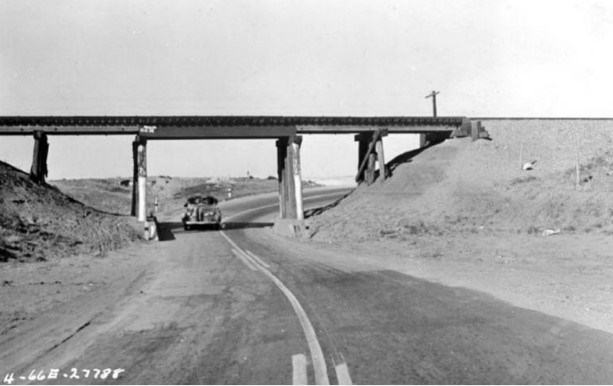
Route 66 Engineering Course
Location: El Paso, Texas
Applicant: The University of Texas at El Paso
NPS Grant: $17,844 Cost-Share Match: $17,844
Route 66 bridges and road alignments are among the most threatened historic resources of the road because modern engineering and safety requirements often differ from historic preservation goals. A related issue is that in engineering education, many students are trained to prioritize new design approaches rather than maintenance and preservation of existing infrastructure. Qualitative concepts including intrinsic, historic values are typically not a part of engineering curriculum, and yet such approaches could lead to cost-savings, reduction of environmental impacts, preservation of engineering legacies, and enhanced traveling experiences. Grant funds will assist the Department of Civil Engineering at The University of Texas at El Paso with the development of a three-credit college level course titled “Engineering Route 66”, which will challenge engineering students to grapple with issues such as historic value and preservation. The course will also be adapted into an online version with course materials that other universities can implement.
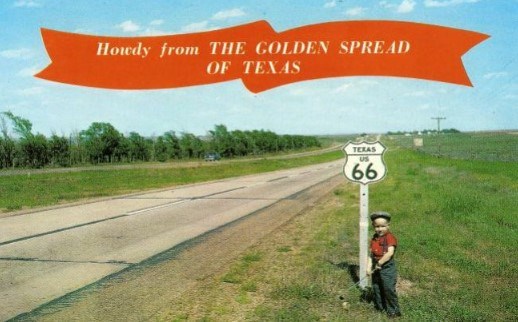
Texas Route 66 Road Segment National Register Nominations
Location: Wheeler County, Texas
Applicant: Texas Historical Commission
NPS Grant: $5,172 Cost-Share Match: $5,600
When Route 66 was decommissioned, its segments were split into multiple private, municipal, state, federal, and tribal jurisdictions, of which approximately 85% are still drivable today. In the case of Wheeler County, Texas, its pristine, 1931 concrete segments were transferred to the state in 1968 to become I-40 frontage road. Still in use today, these segments represent some of the last remaining original Route 66 pavement in the state. With four segments totaling approximately eight miles, they have had few improvements and retain a high degree of integrity in terms of location, design, materials, workmanship, feeling, and association. The Texas Historical Commission has identified these segments as historically significant, and grant funds will assist with their nomination to the National Register of Historic Places. Listing on the National Register will provide opportunities for increased public awareness of their significance, and afford an elevated level of protection and preservation relating to future, federally-funded construction projects.
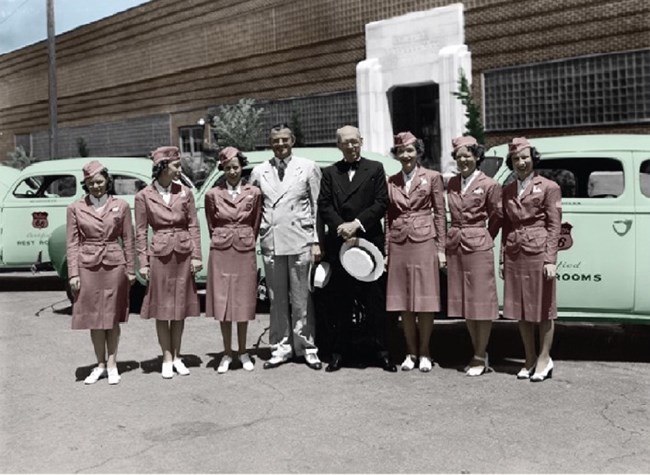
Route 66 Women Multi-Episode Documentary Film
Location: Santa Monica, California
Applicant: Cinefemme
NPS Grant: $14,475 Cost-Share Match: $22,025
The “Route 66 Women: The Untold Story of the Mother Road” project explores the vibrant and culturally significant Route 66 corridor from Chicago to Santa Monica from the diverse voices and perspectives of women. These women tell compelling stories of courage and overcoming injustices, and ultimately display a resilience that offers much for audiences to reflect upon today. Connecting personal narratives to place creates new meaning that invites audiences and potential travelers to go on their own Route 66 journeys with a deeper understanding and context of the road. Building upon earlier phases of the project (www.route66women.com), this next phase will collect additional information that provides context for stories already collected in order to expand the project into a multi-episode documentary. The full-length oral histories collected during the project will also be made available to libraries and archives along the Route 66 Corridor as a valuable contribution to public history. (Photo credit: The Phillips 66 Highway Hostesses – Courtesy of Phillips 66)
